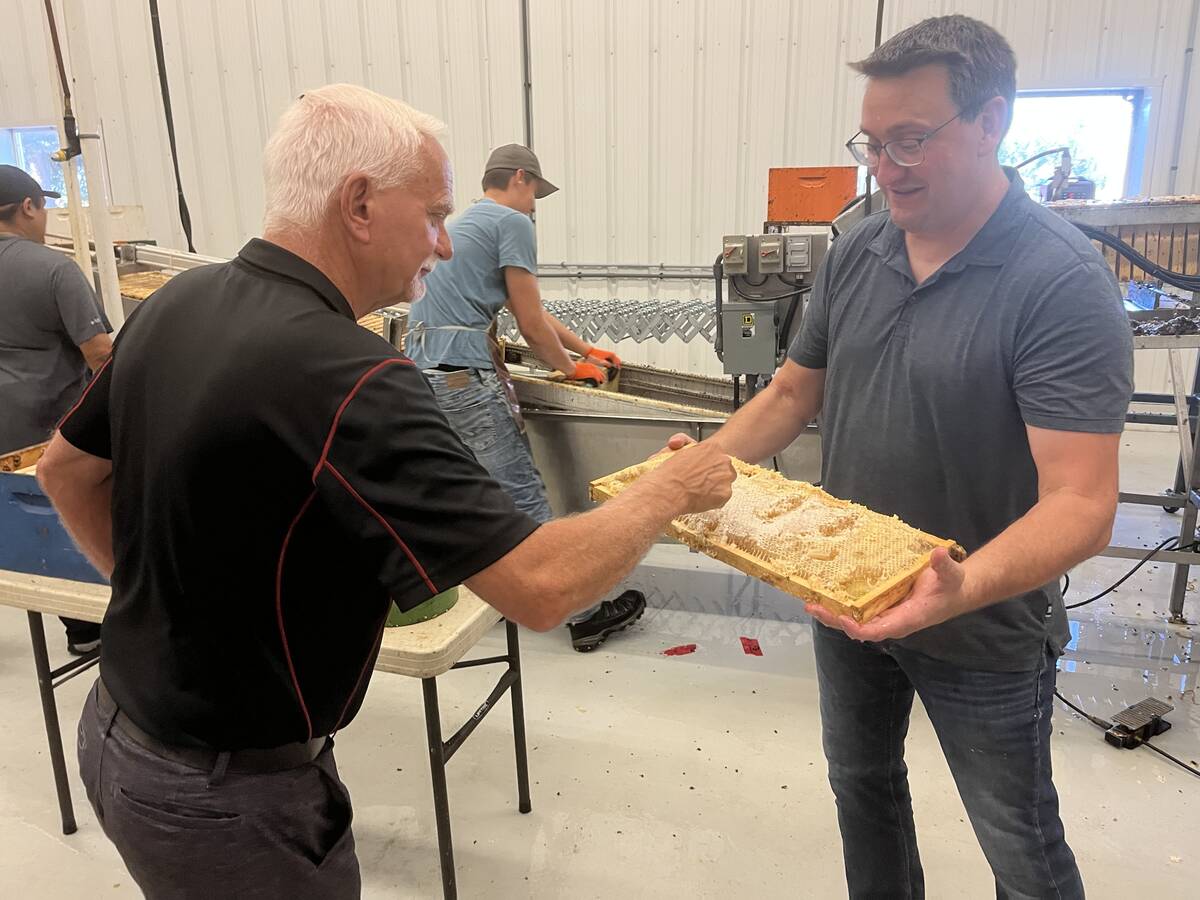Q: Recently my 11-month-old baby and I were in an accident. At the time she did not react, despite being in the car, buckled up in the back seat by herself for over an hour and a half, while the fire department worked its jaws of life to free her. I thought that she was just being a courageous kid. She did not cry, and just kind of lay in her crib when we got back to the house. Now I am not so sure. Do you think that I might have missed something?
Read Also

Alberta honey business ‘thrives’ despite bumpy beginnings
Thrive Honey showcases its honey production in market where Alberta produces 40 per cent of all honey produced in the country
A: I don’t want to alarm you, but chances are somewhat good that your daughter was caught in the midst of a traumatic reaction to the accident. Part of the immediate reaction to trauma is a constriction of the vocal cords. Maybe your daughter wanted to cry but she was so frightened that she couldn’t.
As you know, babies cannot tell us when something is wrong, but they can give off a number of signals. Were her eyes glazed, looking, but clearly not seeing anything? If so, she may have been traumatized from the accident. Was her skin colour normal, or had she gone pale from the accident? Were her breathing and pulse rates normal, or were they too fast or too slow? Either extreme is indicative of trauma. Was she overly excited, or acting like nothing had happened? Again, either extreme is indicative of trauma.
Dealing with an infant who has been traumatized is difficult. Surprisingly, the starting point is not with the infant. It is with the parent. The natural reaction for parents whose children have experienced trauma is to quickly rush over to try to calm their children down. When this happens the parents are most likely traumatized themselves and, rather than giving their children the soothing and comforting support they need, the parents might increase the trauma their children experience.
Psychologists who have studied trauma in children tell us that those parents who are most effective take a few moments to calm themselves before approaching their children. The parents relax their own breathing patterns, get their pulse rates under control and make sure that the tones of their voices are calm and relaxed.
These parents understand that children, especially infants, respond to their non-verbal cues more than what their parents are telling them. When the non-verbal cues from moms and dads tell their children that the world is again safe, the children will start to settle themselves more quickly.
If your little girl was traumatized from the accident, try not to be too hard on yourself for having missed it. Trauma in children has only just recently been identified as one of those problems they have to deal with as they grow up.
Having had your experience with your daughter in the car accident, and having learned a little more about trauma in general, you are in a better position to understand some of the challenges that are waiting for her as she continues to grow. We are, after all, good parents because of what we learn from our children, not because of what we think we already know.
Jacklin Andrews is a family counsellor from Saskatchewan who has taught social work at two universities. Mail correspondence in care of Western Producer, Box 2500, Saskatoon, Sask., S7K 2C4 or e-mail jandrews@producer.com.
















